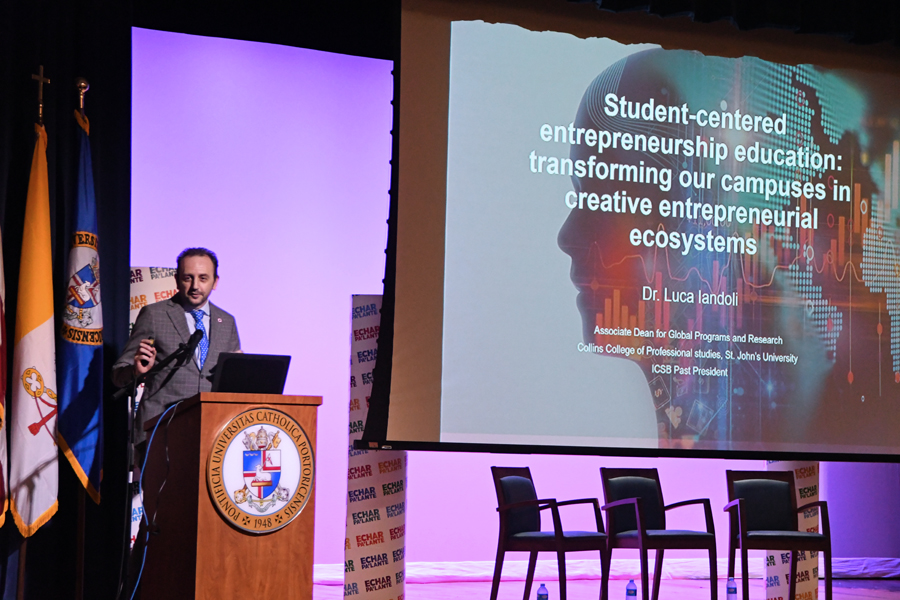Singapore experts discuss how to prepare ‘workforce of the future’

Faced with the changes the world is experiencing given the advances in technology, the traditional education model must be transformed to one of lifelong learning so that individuals are always prepared and ready to effectively adapt to changes in their work and community environment.
Singapore, recently named the most competitive country in the world by the International Institute for Management Development, established this educational strategy as one of its five pillars for economic development, and two of its experts visited Puerto Rico and shared with the members of the “Echar Pa’lante” multisectoral alliance their knowledge to help the population develop ongoing learning skills.
During his visit, Andrew Fung, one of the leading thinkers, educators and facilitators of the country-wide development and business strategy, and Michael Fung, who leads the public-private partnership Skills Future — in charge of implementing the Singapore strategy — shared with private sector leaders, educators and representatives of nonprofit organizations, backed by the Banco Popular Foundation, their recommendations for a possible strategy for this type of learning in Puerto Rico.
“World experts anticipate that the Industrial Revolution 4.0 — which has already begun — will have a very big impact on the working world, organizational structures and individuals,” said Gloria Viscasillas, integrating leader of “Echar Pa’lante” and vice president of Banco Popular.
“In the past, people studied, graduated, worked and retired, but now what’s experienced is a continuous cycle of lifelong learning to be able to adapt to continuous and increasingly rapid change in the workplace,” she explained.
The experts visit came after a delegation of “Echar Pa’lante” partners from all sectors traveled to Singapore to learn about what the Asian nation has done to become one of the most advanced economies on the planet.
Michael Fung used as an example the case of how the arrival of mobile applications such as Uber have transformed the transportation sector, particularly impacting taxi drivers, and in the future the change will be even greater with self-driving vehicles.
“Given these cycles of rapid changes driven by technology, individuals have to take action and have to be able to readjust their skills with a sense of urgency and curiosity to stay relevant in a society oriented to technology and innovation,” he said.
As a result of these major changes, by 2027 the World Economic Forum anticipates that half of the workforce will depend on self-employment and by 2025, 52% of the tasks will be performed by robots.
“Echar Pa’lante” is collaborating with the academic sector, nonprofit organizations and organizations such as the Society for Human Resources, the Puerto Rico Chamber of Commerce and the Private Sector Coalition to develop and implement the educational strategy in Puerto Rico.
“’Echar Pa’lante’ has identified ongoing learning as an opportunity to develop human capital on the island, and the visit of Singapore experts helps us to understand not only the practices, but also the learning process in Singapore’s implementation strategy, ”said Viscasillas.
During a workshop with the experts from Singapore, representatives from various sectors — headed by the Private Sector Coalition — discussed Puerto Rico’s particular needs and identified opportunities such as early childhood education to develop the continuous learning strategy for the island.
“It is truly something unique to see entrepreneurs and executives from the private sector in Puerto Rico come together and seek innovative solutions to meet the challenges that the workforce will face — particularly young people — considering the global changes ahead. That passion and enthusiasm they demonstrate will be key for them to continue being successful in the future,” Michael Fung told attendees.
He added that individuals have to motivate themselves to continuously educate themselves to develop on a personal and professional level.
“Lifelong education is a personal action that must be deliberate and voluntary to be successful,” he said.










